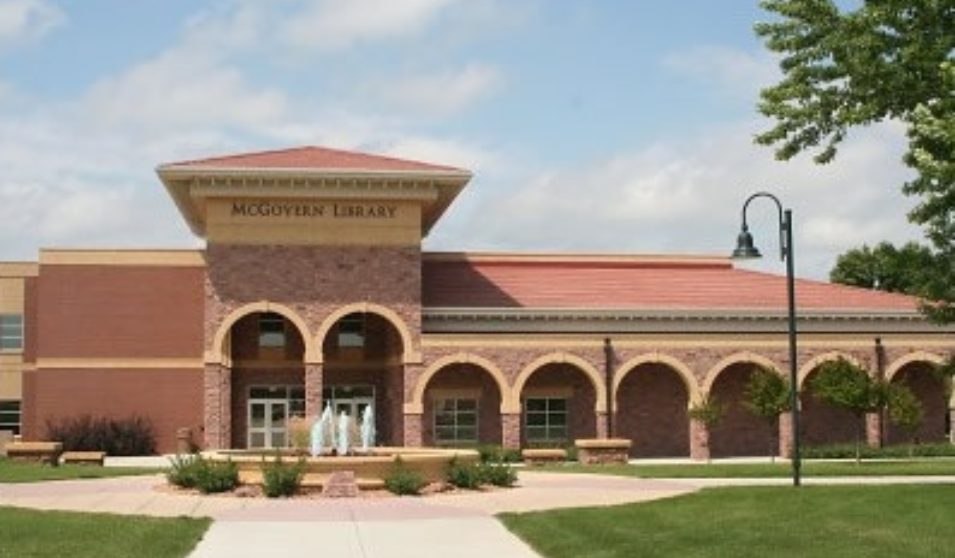The Rural Schools Collaborative board of directors has approved a Rural Teacher Corps planning grant in conjunction with Dakota Wesleyan University (DWU). Located in Mitchell, South Dakota, DWU was recently awarded a $750,000 Cargill grant for a rural healthcare initiative, and under the leadership of President Amy Novak, the institution is exploring and enhancing its role as a rural development center.
The premise of this cooperative work is based on the continued success of Missouri’s Ozarks Teacher Corps, which has been in existence since 2009. Funding from the Rural Schools Collaborative, Dakota Wesleyan University, and an anonymous donor supports the $10,000 planning project.
Jim Beddow†, RSC board member and DWU president emeritus, has played a valuable role in developing this project. Beddow said, “In our view, a quiet, modest parallel initiative re: preparing rural teachers/community leaders could provide insight relative to the feasibility and/or appropriateness of a dual foundational strategy – healthcare providers and teachers as building blocks for a synergistic rural development effort. Over time, such a strategy would leverage historically key DWU programs and could be communicated in a precise and clear manner for rural stakeholders and other important DWU constituencies.”
In addition to the potential advantages for Dakota Wesleyan, this effort will be of real value to the new Rural Schools Collaborative. According to Beddow, “Encouraging higher education institutions to address rural issues in a more intentional manner is a primary RSC objective, and partnering with DWU in this endeavor would be of great value to our work. Our hope is that, together, we can launch a multi-state discussion on how rural teachers can be catalysts for the common good.”
The collaboration between Dakota Wesleyan University and the Rural Schools Collaborative is based on the following beliefs:
Rural communities and their schools have been weakened by the following:
- Depopulation
- Social and capital flight
- Farm consolidation
- Loss of small businesses
- Skilled workforce shortages
Education is the linchpin issue in rural economic development (This is the essence of key RSC partner, the Community Foundation of the Ozarks’ Rural Schools Partnership):
- Public school systems are the reasons many small towns still exist;
- Families that are coveted by small communities will not relocate unless they believe public school systems are strong;
- School systems are usually among the largest, if not the largest, employer in any rural community;
- Education has always been a starting point for meaningful change.
However, sustaining and strengthening rural schools has many challenges:
- Unprecedented teacher shortages are on the horizon, especially in the STEM and special needs areas;
- School districts continue to adhere to structures and models that are inappropriate for the nature of small communities in the 21st Century;
- Schools and their personnel often lack the nimbleness and adaptive abilities that will be required to leverage new technologies in ways that will make small schools more effective and viable.
The answer to these challenges is, in part, to begin recruiting and preparing rural teachers who:
- Have a strong sense of place, mission, and rural identity (in other words—not just looking for a first job until going to a larger district);
- Have a more comprehensive understanding of rural “issues,” including economic-, environmental-, and justice-related;
- Are savvy communicators, networkers, and users of new media;
- Recognize the imperative to and value of collaboration—within a school, across the community, and between diverse rural regions;
- Are perceived as community leaders and catalysts for change.
Change rarely comes from the middle, and it is unlikely that traditional teacher education programs will serve as the initial catalysts in developing the type of teacher-leaders desperately needed by rural schools and their communities. It is also unlikely that a prescriptive model, one developed from the top down, will lead to meaningful change.
Therefore, in this project, RSC and Dakota Wesleyan University will partner with the Ozarks Teacher Corps, a select number of willing higher education institutions, rural communities, and rural advocacy groups to develop an active cadre of future rural teacher-leaders. This group, with assistance from partner-facilitators, will accomplish the following:
- Explore and begin to articulate their own rural identity as future teachers;
- Take initial steps to create a relational network of peers that will support, encourage, and inspire each other in the years ahead;
- Explore, imagine, and, ultimately, propose appropriate pathways for the Rural Schools Collaborative and its partners to recruit, prepare, and engage/retain a working Rural Teacher Corps, one that has the potential to re-imagine rural education and its leadership roles in given communities or regions.
If you or your institution would like to participate in the Rural Teacher Corps planning project, please contact Rural Schools Collaborative director, Gary Funk, at 417-848-9083 or email him at gfunk@ruralschoolscollaborative.org.
†Dr. Jim Beddow, longtime RSC advocate, board member and chair emeritus, and passed away on June 25, 2023. Read more about his legacy.




